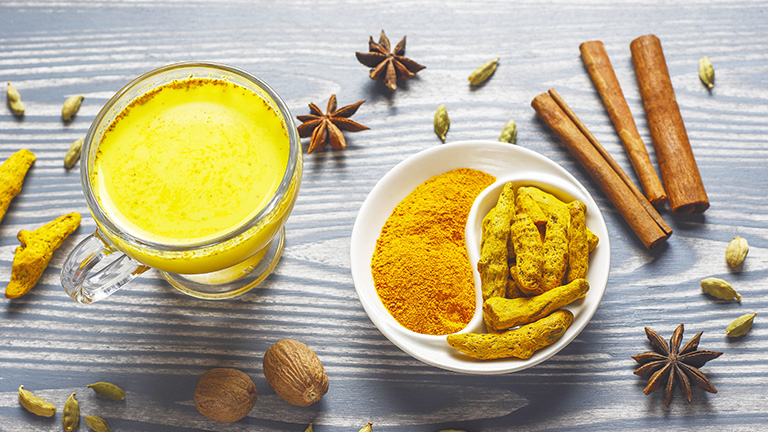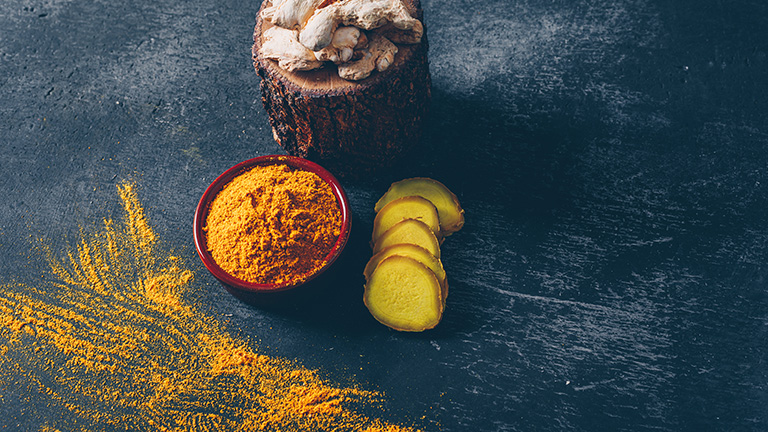Benefits of Turmeric for Joint Pain: Turmeric is a golden spice that has potent anti-inflammatory properties, making it a classic for relieving joint pain for centuries. Due to its high content of curcumin, turmeric can help alleviate inflammation, swelling, stiffness, and discomfort resulting from arthritis and similar issues. To promote joint range of motion and health, turmeric may be consumed as a dietary spice or supplement.
Chapter Summaries
Introduction to Turmeric and Joint Pain
What is Turmeric?
Turmeric, or Curcuma longa as it is scientifically known, is a golden yellow spice that is often found in South Asian dishes. The component of turmeric that is so well known is curcumin, an active ingredient with powerful anti-inflammatory, antioxidant, and analgesic properties. For centuries turmeric has also been used in traditional medicine systems such as Ayurveda for many indications including joint pain, arthritis, and inflammation.
How Joint Pain Occurs
Joint pain can arise from causes such as inflammation, injury, and degenerative diseases such as osteoarthritis and rheumatoid arthritis. Symptoms may include stiffness, swelling, and decreased range of motion. Chronic joint pain may also compromise quality of life. Hence, some people are using natural remedies (such as turmeric) to manage pain, and their popularity continues to grow across the globe.
Key Benefits of Turmeric for Joint Pain
Anti-inflammatory Properties
Curcumin is the active component in turmeric, and is recognized for its ability to inhibit inflammatory pathways and lessen joint inflammation. Regular usage may help to reduce swelling and stiffness. It can be a natural alternative to traditional anti-inflammatory drugs used for arthritis and chronic joint pain.
Pain Reduction in Arthritis
Curcumin, a compound found in turmeric, helps to relieve pain and discomfort related to arthritis by inhibiting inflammatory chemicals in your body. Studies have shown that regularly incorporating turmeric into your diet can enhance joint function and aid in natural and effective relief of pain in people with osteoarthritis and rheumatoid arthritis.
Improving Joint Mobility
By decreasing swelling and stiffness, turmeric can improve joint mobility and can facilitate movement. Consuming turmeric, which contains curcumin, on a regular basis can enhance flexibility, facilitate ease of movement in daily activities, and assist in supporting joint health in general, and for those with arthritis and joint pain.
Supporting Cartilage Health
Turmeric supports cartilage preservation by blocking the enzymes that degenerate joint tissue. Its anti-inflammatory and antioxidant properties promote joint health over the long term, help slow cartilage degeneration, and allow for mobile and flexible joints in old age and arthritis.
Scientific Evidence Behind Turmeric
Clinical Trials and Results
Clinical studies show that the use of turmeric supplements provides effective relief to patients with osteoarthritis and rheumatoid arthritis for joint pain, swelling and stiffness. Additionally, the data suggest that curcumin may be absorbed better when combined with black pepper when considering this important, natural adjunct to conventional arthritis treatments.
Studies on Curcumin and Arthritis
Many studies have shown that curcumin, the active ingredient supplements turmeric, is effective in reducing pain and inflammation among arthritis patients. Clinical studies have also shown curcumin’s effectiveness in improving joint function, and it is considered an effective safe, natural option or adjunctive treatment to traditional anti-inflammatory medications.
How to Use Turmeric for Joint Pain
Turmeric Powder in Your Food
Adding turmeric powder to your food is an simple way to receive its benefits. You can add turmeric powder to soups, smoothies, marinades or curries for daily, anti-inflammatory benefit.
Turmeric Supplements and Capsules
Turmeric supplements and extracts are easy and convenient to take on a regular basis. Look for standardized curcumin content and/or formulations that also include piperine for absorption.
Turmeric Tea and Golden Milk
A relaxing drink option to assist with joint pain when combined with black pepper and healthy fat like-coconut milk is turmeric tea and golden milk.
Dosage and Safety Considerations
Recommended Daily Intake
An average dosage range of curcumin for joint pain is 500 to 1,500 mg per day, while turmeric powder is generally considered safe at doses of 1 – 3 grams (gr) daily in adults.
Possible Side Effects
Turmeric is considered generally safe, but high doses can upset the gastrointestinal system and may cause nausea, diarrhea, and/or acid reflux. Turmeric may also pose risks for people with gallstones or bleeding disorders. Consult your doctor before taking turmeric because of safety risks in certain situations.
Combination with Other Remedies
Turmeric works best with additional natural anti-inflammatories such as omega-3 fatty acids, ginger, and physical activity. Always consult your doctor or other healthcare provider before taking supplements combined with prescription medications.
Expert Opinions on Turmeric for Joints
Rheumatologist Point of View
According to notable rheumatologist Dr. Sarah Mitchell: “Curcumin from turmeric has potential for anti-inflammatory outcomes in patients with arthritis, but does not serve as an alternative for your prescription medications, it can be taken safely along side traditional medicine.”
Nutritionist Recommendations
Nutritionist Mark Reynolds also recommends: “Incorporating turmeric into your regular diet in conjunction with black pepper will be the most effective way to increase curcumin absorption. The biggest factor is consistency for the best outcome in joint health over time.”
Lifestyle Tips to Enhance Joint Health
Diet And Anti-Inflammatory Foods
A diet that includes vegetables, fruits, omega-3 fats, and spices such as turmeric can help to reduce inflammation and promote healthy joints. It is also important that you are avoiding processed foods, as well as using too much sugar as these can promote, or lead to, increased inflammation in the body.
Movement And Mobility Insurance
Low-impact activities such as swimming, yoga, and walking can help to restore joint range of motion and decrease stiffness. Combined with a diet that includes turmeric, your regular exercise could be more effective in improving joint pain.
Frequently Asked Questions (FAQ)
Can turmeric cure joint pain completely?
Turmeric cannot cure joint pain completely but might help reduce the inflammation and discomfort caused by it, which could help in increasing quality of life.
Is turmeric safe for long-term use?
Generally, turmeric is safe for long-term use and in normal amounts, but if a person uses significantly higher amounts, they may experience digestive problems. Talk to a healthcare provider for recommendations based on a person’s specific health status.
Should he or she take turmeric with meals?
Yes, a person should take turmeric with meals, preferably with healthy fats, as this will enhance curcumin absorption and ultimately benefits.
Can I use turmeric as the singular replacement for prescribed medications for arthritis?
No, a person can add turmeric as an adjunctive treatment to their prescribed medications, but it will never be one’s sole treatment. Check with your doctor before modifying the treatment plan.
What is the best form of turmeric to help with joint pain?
A standardized curcumin supplement with black pepper added is most effective. A person can also consume turmeric in powder form through food or teas. These forms could be effective, but they will usually need a larger quantity of turmeric.
Conclusion Benefits of Turmeric for Joint Pain
Turmeric is a potent natural treatment for joint pain due to its anti-inflammatory, analgesic, and cartilage-protecting features. Scientific studies have illustrated turmeric’s effectiveness, especially when combined with black pepper which helps with absorption. Including turmeric in your diet or in supplements and teas, along with leading a healthy lifestyle and exercise, will help with mobility, pain relief, and quality of life. Remember to discuss with your healthcare provider for personal treatment and safe supplementation.


